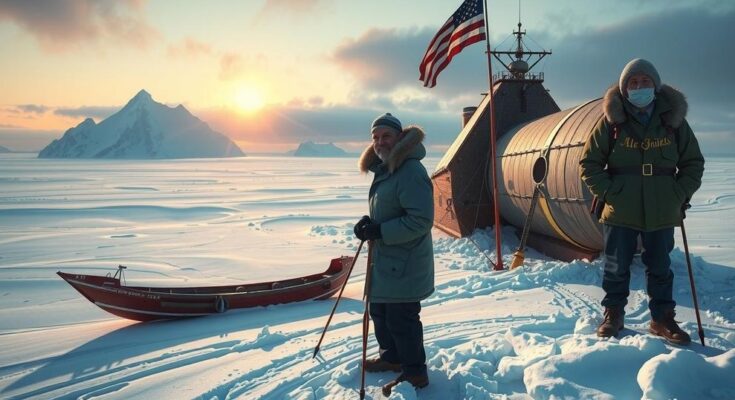President Gabriel Boric of Chile made history by visiting Antarctica’s South Pole, the first by a Latin American leader. The trip, named Operation Pole Star III, aimed at extending environmental monitoring in the region and affirming Chile’s territorial claims. Accompanied by scientists and officials, Boric emphasized the importance of maintaining Antarctica as a space dedicated to peace and science.
Chile’s President Gabriel Boric undertook a groundbreaking journey to Antarctica, marking the first visit by a Latin American leader to the South Pole. This two-day expedition, named Operation Pole Star III, aims to enhance environmental monitoring regarding pollutants in the region. Accompanied by scientists, military commanders, and government ministers, he made his way from Santiago to Punta Arenas before finally reaching the US-operated Amundsen-Scott South Pole Station.
As one of the seven nations claiming territorial rights in Antarctica, alongside Argentina, Australia, France, New Zealand, Norway, and the United Kingdom, Chile is a signatory to the Antarctic Treaty which permits only peaceful and scientific endeavors on the continent. Historically active in the northern sector of Antarctica, the government is now focusing on expanding its research initiatives into the western region of the continent. President Boric expressed pride in this milestone visit, regarding it as a testament to Chile’s commitment to maintaining Antarctica as a realm of science and peace, while also affirming Chile’s sovereignty over the area. He remarked, “From here everything is north: there are only 12 flags flying. One of them is the Chilean flag and that is a source of pride.”
This article discusses President Gabriel Boric’s historic trip to the South Pole, emphasizing its significance as a landmark event for Latin America. The trip not only reinforces Chile’s scientific initiatives and territorial claims in Antarctica but also reflects the nation’s commitment to environmental monitoring. The context involves Chile’s position among the twelve nations that signed the Antarctic Treaty and its historical operations in Antarctica, particularly in relation to expanding research efforts.
In conclusion, President Gabriel Boric’s expedition to Antarctica represents a pivotal moment in Chilean history, marking the first visit by a Latin American leader to the South Pole. The journey underscores Chile’s dedication to environmental stewardship, its scientific pursuits, and its ongoing sovereignty claims in Antarctica. This historic trip highlights the significance of cooperative international efforts and positions Chile firmly in the broader narrative of Antarctic exploration and research.
Original Source: www.cnn.com




